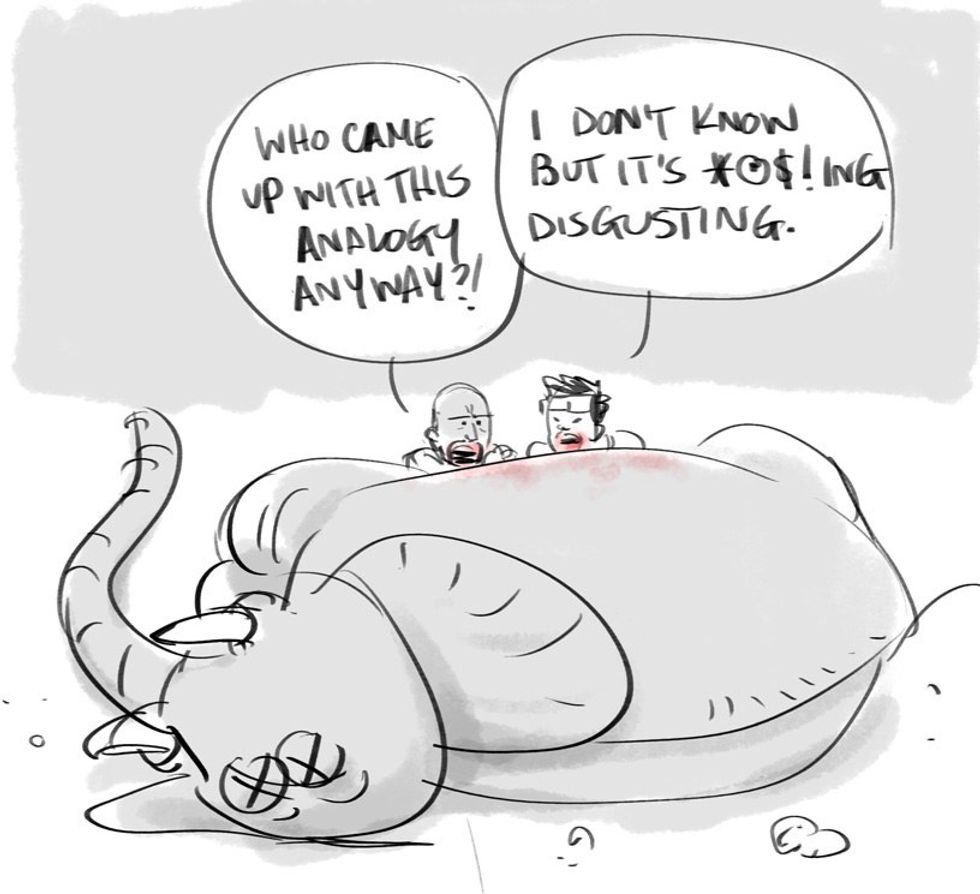Early twentieth century academia was hardly the most open of professions. In the realm of the humanities – for example, history – the most prominent scholars were upper class white Protestants like Samuel Eliot Morison and Douglas Southall Freeman. Students of working class, Catholic, or immigrant backgrounds found difficulty obtaining positions in the humanities. Eugene Genovese fit all three of these categories – but in spite of the odds, he would go on to become of the most popular – and controversial – American historians of his age.
Born in Brooklyn in 1930, Eugene Genovese was the son of a dockworker. From an early age, he absorbed left-wing politics, joining the Communist Party at the age of fifteen. Independent, nonconformist, and fiercely intellectual, he soon gained notoriety for his keen mind, historical knowledge, and blunt-spoken opinions. Despite his expulsion from the party at age twenty - he remarked that he had zigged when he was supposed to zag – Genovese remained a committed activist through his college years at CUNY and as a Ph.D. student at Columbia.
As a self-proclaimed Marxist, Genovese had difficulty maintaining a job in a nation still paralyzed by fears of creeping communism. Throughout his life, he taught at 12 different Universities. In 1965 Richard Nixon and other conservatives demanded Genovese’s removal from Rutgers University after he publicly wished for American defeat in Vietnam. In 1978 he became the first Marxist president of the Association of American Historians, editing the radical journals “Studies on the Left” and “Marxist Perspectives” in his spare time.
Genovese’s most lasting contribution to American historical scholarship was his application of Marxist theory to slavery in the American south. In his classic work “Roll Jordan Roll: the World the Slaves Made,” Genovese used Antonio Gramsci’s theory of cultural hegemony to illustrate what he viewed as the pre-capitalist, almost feudal nature of antebellum society, a culture he described as centering around the paternalistic relationship between masters and slaves.
By “paternalism,” Genovese by no means implied that slavery was somehow benevolent. Rather, he sought to describe the nuances of the plantation society’s social power structures – both through the attempts of slave owners to impose their culture on slaves and through the attempts of African Americans to preserve their culture. In his further works “From Rebellion to Revolution” and “The Fruits of Merchant Capital,” Genovese examined what he believed to be the conflict between slavery and capitalism, as well as the role of religion in African American life. The latter work was coauthored with his wife Elizabeth Fox Genovese, a fellow historian and noted feminist scholar.
However, Genovese was showing signs of disenchantment with the left by the end of the 1960’s. At an American Historical Association convention in 1969, he eloquently opposed a resolution condemning the Vietnam War, suggesting that such open politicization of the Association would unfairly marginalize the war’s opponents. He grew nervous over the New Left and its inroads in the historical profession; although still a Marxist, he increasingly found himself feuding with scholars of his own movement.
By the 1980’s he had abandoned the left entirely, embracing traditionalist conservatism along with his wife, with whom he reconverted to Catholicism. Genovese’s subsequent work is concerned largely with the history of southern conservatism, in particular, the Agrarian movement of the early twentieth century. He came to admire the South’s tradition-bound culture and especially the thought of the Agrarians, whom he praised for their recognition of human limitations. Genovese insisted that he had never ceased to criticize capitalism. He had merely shifted from a Marxian critique of class to a pre-industrial, traditionalist rejection of the modern market.
As Genovese aged and the historical profession moved on, he increasingly retreated into books and study. His wife Elizabeth died in 2007; Genovese followed her five years later.
Rarely has a historian undergone a more radical evolution. A hero to both right and left – albeit at different points in his career – Genovese straddles the divide between progressive and traditional, conservative and liberal, old America and new. While his long intellectual journey leaves historians a divided and varying legacy, his enduring works will be read by students of history for generations to come.





 Photo by
Photo by  Photo by
Photo by 
 Photo by
Photo by 


















